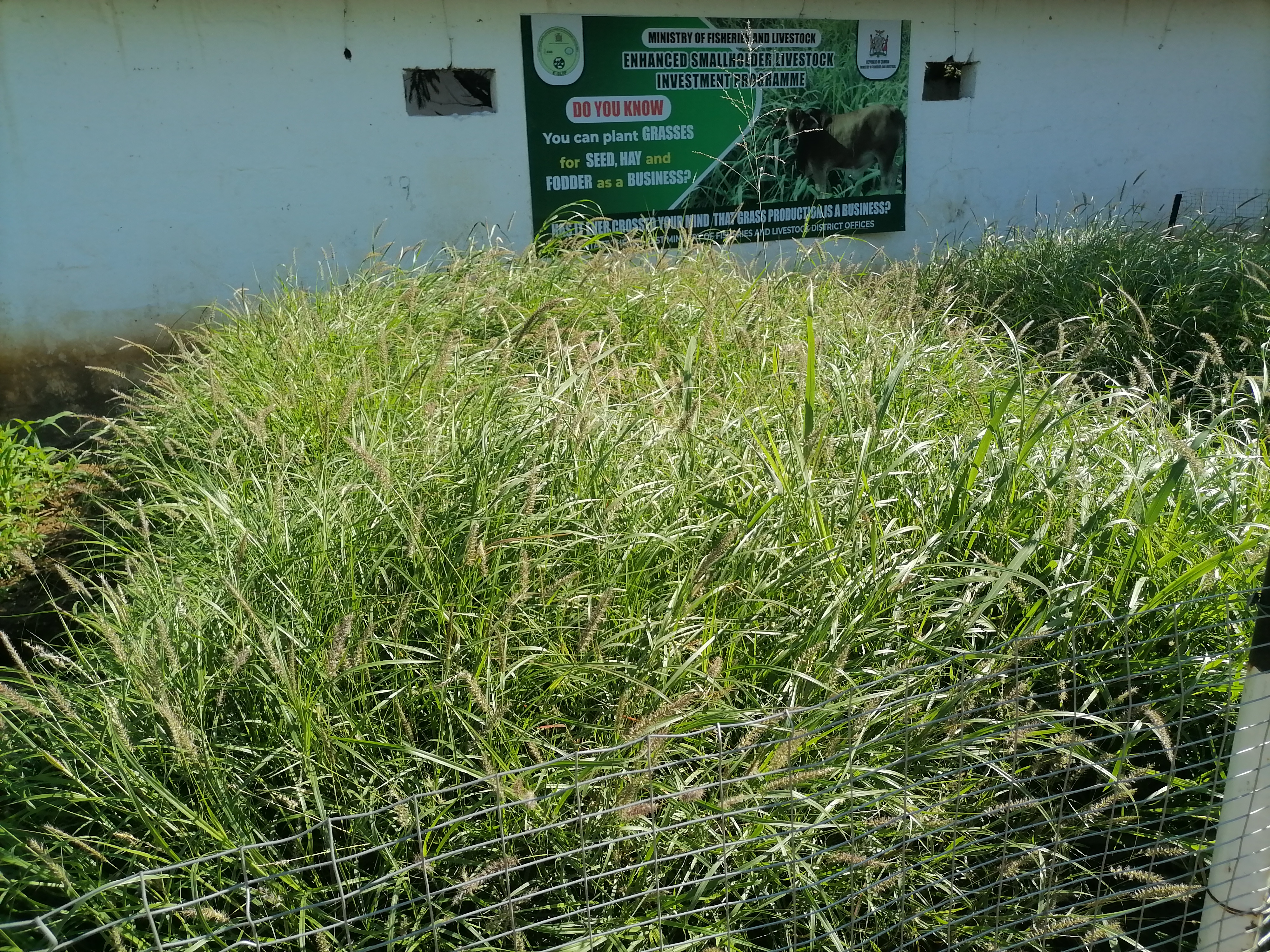E-SLIP FACILITATES PASTURE PRODUCTION UNITS IN PRIMARY SCHOOLS

Sustainable Pasture Management for Livestock requires more training of every stakeholder if both the beef and dairy industries are to thrive and contribute towards the Zambia’s Gross domestic product (GDP).
To help enhance pasture production in the country, Government through the Enhanced Smallholder Livestock Investment Program (E-SLIP) has been engaging farmers on pasture management technologies and more than 50-thousand farmers across the country have so far been trained.
More recently, the Programme embarked on a country-wide initiative to train pupils and teachers on pasture production. This was aimed inculcating agricultural knowledge to children in order to actualize the sustainable food systems in Zambia.
The initiative was prompted the Ministry of Education to commence the process of reviewing the school curriculum and incorporate pasture subjects in both primary and secondary schools.
Central Province Education Officer Hamududu Mambe disclosed that the move would help pupils acquire skills on proper management of livestock thereby guaranteeing a sustainable and improved livestock subsector.
Mrs Mambe explained that farmers could only realize maximum profit in their beef and dairy ventures, if they began to grow pasture for their livestock.
She emphasized the need for promotion of pasture production in communities at all levels in order to increase livestock production and productivity in the country.
Mrs Mambe told NAIS that enhanced pasture production would help farmers maintain food for their livestock throughout the year as livestock productivity was premised on good nutrition.
“Farmers need to ensure that they have available food for their livestock in all seasons because usually in the dry season there is less pasture with low nutritional content hence the need to complement. Keeping a positive energy and nutrient balance is important for successful livestock breeding and milk production,” Mrs Mambe reiterated.
Oregon State University reports that good pastures were profitable as they provided an economical source of livestock feed, reduce labour requirements, build soil health and fertility, reduce erosion, and reduce invasions of noxious and poisonous weeds. Investing in establishing pasture fields from scratch may sound thorough but the pasture could easily revert to the previous plant composition in a few years - becoming a waste of money, time, and labour, if the land was poorly managed. Well established and managed perennial pastures can produce effectively for five to ten years or more.
And Principal Livestock Production Officer under the Ministry of Fisheries and Livestock Elison Msumuko explained that the Ministry of Fisheries and Livestock had developed various mechanisms such as genetic improvement and promotion of pasture production to enhance animal health in the country.
Mr Msimuko emphasized the need for children to adopt the concept of pasture production while young so that they grew up with skills on proper management of livestock and conservation of the environment.
He noted that equipping children with pasture knowledge will help to protect the future food systems as there would be a reduction in over grazing which is detrimental to agricultural production.
“It is worth noting that overgrazing has serious consequences on rangeland, it compromises soil quality and health thereby harming various plant species as well as crops. The negative impacts are likely to worsen in future if children do not actively participate in pasture production,” Mr Msimuko said.
He encouraged teachers to promote pasture production by ensuring that they made demo plots for pupils in areas where they are carrying out their production units.
He urged schools to consider growing pasture, instead of concentrating on vegetables and other crops only.
According to South Dakota State University, overgrazing is re-grazing plants before they have been allowed adequate recovery from the previous grazing event. The correct timing of the second grazing event to prevent overgrazing depends on the type and amount of forage that is found in a pasture.
Meanwhile, E-SLIP’s Forage Seed Specialist Dikoka Chingambu encouraged farmers and schools to consider taking pasture production as a business as it has potential to increase incomes.
Mr Chingambu said taking pasture production as a business would help schools earn extra incomes for their operations instead of waiting for funding from government.
He noted that children should acquire agricultural knowledge in order for them to engage in profitable farming while they were young.
Mr. Chingambu observed that pasture production is a lucrative venture which farmers should embrace as the demand for pasture was high both at local and international market.
Establishing pasture fields can not only ensure high-quality feed for livestock but also improve incomes in schools and contribute immensely to Zambia’s GDP. - NAIS
